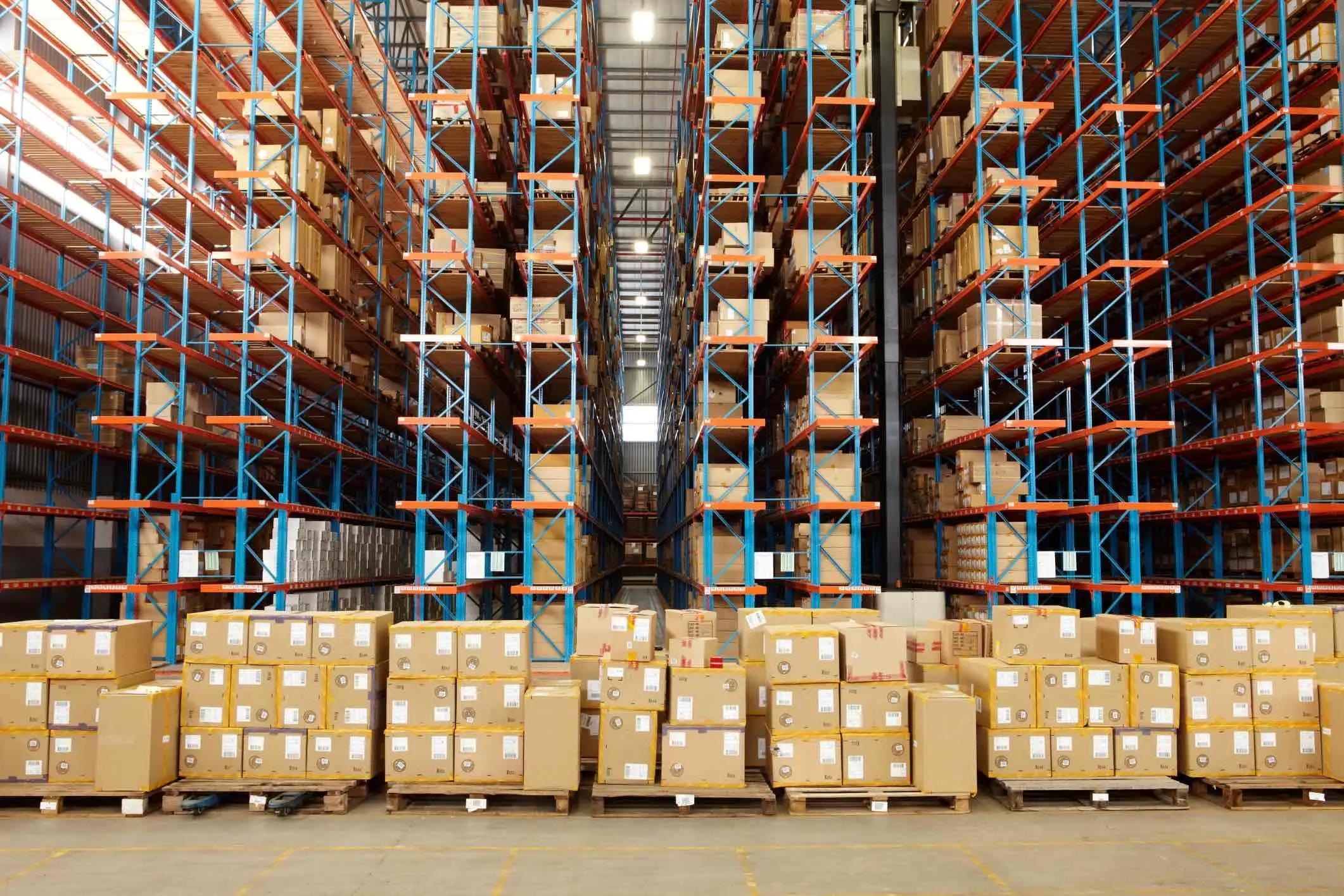AI Trends Shaping the Future of the Logistics Industry

Artificial intelligence is transforming the logistics industry, making operations faster and smarter. AI-driven tools improve efficiency by reducing errors by up to 50% and enhancing inventory turnover rates by 25%. Yet, only 25% of companies currently use AI. With a projected market size of $58.55 billion by 2031, its adoption is essential.
Key Takeaways
AI helps logistics work better by cutting mistakes by 50%. It also makes inventory move faster by 25%. Companies should use AI tools to improve their work.
Using AI can save a lot of money. Businesses can cut costs by 15%. Start with small tests to see results before using it everywhere.
AI makes customers happier with live tracking and quick replies. Logistics companies should use AI to give better service and gain customer trust.
The Role of AI in Logistics

Transforming Supply Chain Management with Artificial Intelligence
AI is revolutionizing supply chains by addressing inefficiencies and enhancing decision-making. It optimizes route planning, ensuring faster deliveries while reducing fuel consumption. Inventory management also benefits as AI predicts demand accurately, minimizing overstock and waste. By automating manual tasks, you can focus on strategic activities that drive growth. For example, Walmart uses AI-driven forecasting to predict product demand, reducing risks of stockouts and overstocks. Similarly, Amazon employs AI algorithms to manage inventory efficiently, cutting costs and ensuring prompt delivery. These advancements make supply chains more agile and responsive to market demands.
AI also enhances safety by forecasting maintenance needs for vehicles and equipment. This reduces breakdowns and accidents, ensuring smoother operations. Companies like Boeing use predictive maintenance to monitor aircraft health, minimizing unscheduled downtime. By integrating AI into supply chains, you can achieve cost savings, operational efficiency, and improved customer satisfaction.
Enhancing Operational Efficiency in the Logistics Industry
AI in logistics significantly boosts operational efficiency. Businesses adopting AI see a 15% reduction in expenses and a 35% increase in effectiveness. AI-driven tools streamline processes like order picking and last-mile delivery, reducing delivery times. Companies such as UPS use AI-powered route optimization software, saving millions annually by cutting delivery miles and fuel usage. Fully automated warehouses, like those of JD.com, employ robots for sorting, packing, and shipping, achieving faster order processing and accuracy.
AI also helps manage inventory dynamically, reducing levels by 35% while increasing service levels by 65%. These metrics highlight how AI transforms logistics operations, making them more efficient and cost-effective.
Improving Customer Experience Through AI in Logistics
AI enhances customer experience by providing real-time tracking and updates. This visibility allows you to plan deliveries better, fostering higher satisfaction. In 2023, 41% of logistics companies implemented AI-powered chatbots and virtual assistants to improve customer interactions. For instance, FedEx uses AI chatbots to offer real-time shipping updates, ensuring seamless communication.
AI also analyzes customer feedback and product performance, enabling logistics companies to respond to your needs effectively. JetBlue Airways, through its Customer 360 Initiative, integrated AI for dynamic pricing and operational forecasting. This approach improved customer satisfaction and delivered a high return on investment. By leveraging AI, logistics companies can build trust and deliver exceptional service.
Key AI Trends Shaping the Logistics Industry

Advanced Analytics for Predictive Insights in Logistics
Advanced analytics is transforming logistics by providing predictive insights that enhance decision-making. You can use it to optimize delivery routes, improving speed and reducing fuel costs. Predictive tools also help forecast delays, allowing you to address potential disruptions proactively. For example, real-time data analysis enables smarter decisions, reducing waste and improving operational efficiency. Businesses leveraging these tools often see lower freight costs and better resource allocation.
Predictive analytics also enhances supply chain visibility. It synchronizes operations, reducing lead times and ensuring timely deliveries. This improves customer satisfaction by maintaining optimal stock levels and meeting demand accurately. By adopting advanced analytics, you can achieve greater productivity and cost savings while staying ahead of logistics trends.
Generative AI for Supply Chain Optimization with JusLink
Generative AI is revolutionizing supply chain management, and JusLink stands at the forefront of this innovation. JusLink uses AI-driven tools like sales forecasting and intelligent replenishment to optimize inventory levels. These features reduce risks of overstocking or stockouts, ensuring seamless operations. Its Control Tower Intelligent Risk Management system monitors supply chain risks in real time, enabling swift responses to disruptions.
JusLink also automates processes like shipment tracking and anomaly detection. This improves productivity by streamlining operations and reducing manual errors. By integrating generative AI, JusLink empowers you to navigate complex supply chains with ease, enhancing overall efficiency.
Computer Vision Driving Warehouse Automation
Computer vision is a game-changer for warehouse automation. It enhances tracking and identification of goods, minimizing risks of overages or shortages. You can use it to automate pallet storage, improving space utilization and reducing errors. For example, computer vision ensures accurate loading counts during shipping, preventing costly mistakes.
This technology also improves safety by monitoring forklift operations and optimizing workflows. With a projected 19% annual growth in the warehouse automation market, adopting computer vision can significantly boost your productivity. It ensures efficient distribution systems, making it a vital tool in modern logistics trends.
Audio AI for Voice-Activated Logistics Operations
Audio AI is reshaping logistics by enabling voice-activated operations. It facilitates hands-free communication, allowing drivers to provide updates on location and delivery status safely. Real-time updates between drivers and dispatchers improve coordination and reduce delays. For example, audio AI assists drivers with navigation instructions, enhancing workflow efficiency.
This technology also improves safety by monitoring driver behavior and issuing alerts in their native language. Additionally, it enhances customer experience through automated voice-to-voice translation during service interactions. By adopting audio AI, you can streamline operations and improve overall productivity.
AI Ethics and Responsible Artificial Intelligence in Logistics
As AI adoption grows, ethical considerations become crucial. Responsible AI applications ensure secure and transparent data usage. You must address concerns like job displacement by investing in workforce training and skill development. Ethical decision-making also requires aligning AI-driven actions with company values and maintaining human oversight.
By prioritizing AI ethics, you can build trust and foster sustainable growth. Responsible AI practices not only enhance your reputation but also ensure compliance with evolving regulations. This approach positions you as a leader in adopting ethical AI trends in logistics.
Challenges of Implementing AI in Logistics
Data Quality and Integration Issues in the Logistics Industry
AI systems rely on high-quality data to function effectively. However, many logistics companies face challenges in maintaining data quality and achieving seamless ai integration. Data silos often create barriers, making it difficult to access the necessary information. Inconsistent data formats further complicate the process, especially when integrating AI with existing systems. These issues can slow down operations and reduce the effectiveness of AI-driven solutions. Addressing these challenges requires breaking down silos and standardizing data formats to ensure smooth integration.
High Costs of AI Technology Adoption
Adopting AI technology in logistics involves significant costs, which can deter many businesses. The expenses include initial development, hardware, software, labor, and ongoing maintenance. For example, initial development costs can range from $5,000 to over $500,000, while hardware costs may exceed $100,000. Labor costs for skilled professionals can reach up to $161,590 annually. These high costs make it essential to carefully plan and allocate resources when implementing AI. By focusing on scalable solutions and leveraging existing infrastructure, you can reduce expenses and maximize returns.
Workforce Training and Skill Gaps in AI Implementation
AI integration in logistics requires a skilled workforce, but many companies struggle with training and skill gaps. A recent study found that 98% of employees want AI training, with 57% preferring company-specific modules. To address this, you can upskill your existing workforce and create tailored training programs. Fostering a culture of continuous learning and incorporating real-world AI projects into training can also help bridge the gap. By investing in education and collaboration, you can ensure your team is prepared to handle AI-driven operations effectively.
Privacy and Compliance Concerns in AI-Driven Logistics
AI systems in logistics handle sensitive data, raising concerns about privacy and compliance. Extensive data collection increases the risk of breaches and cyberattacks. Additionally, complying with regulations like GDPR and CCPA can complicate data handling practices. Non-compliance may result in hefty fines or operational disruptions. To mitigate these risks, you must implement robust cybersecurity measures and ensure transparency in data usage. Adhering to privacy regulations and maintaining ethical AI practices will help you build trust and avoid legal complications.
Future Outlook and Recommendations
Embracing AI for Competitive Advantage in the Logistics Industry
AI is reshaping the logistics industry, offering smaller companies a chance to compete with larger players. By adopting AI, you can transform challenges into growth opportunities. Predictive analytics, for instance, allows you to anticipate market trends and customer needs, enabling proactive decision-making. AI-powered services also help you analyze customer behavior, leading to personalized offerings that boost satisfaction and sales. With the logistics AI market projected to grow from $12.24 billion in 2023 to $565.82 billion by 2033, embracing AI is no longer optional. It is a necessity for staying competitive in this rapidly evolving landscape.
Building a Culture of Innovation with JUSDA
Fostering a culture of innovation is essential for maximizing AI's potential. You can encourage your teams to experiment with new ideas by accepting failure as part of the process. Leveraging AI for data-driven decision-making enhances agility and helps you adapt to market changes. JUSDA exemplifies this approach by integrating AI into its solutions, such as JusLink, to deliver cutting-edge applications. This culture of innovation ensures that you remain agile and responsive to customer needs, positioning your business for long-term success.
Partnering with AI Solution Providers like JusLink
Collaborating with AI solution providers simplifies the integration of advanced technologies into your operations. JusLink, for example, offers AI-powered services like real-time risk management and automated shipment tracking. These solutions streamline operations, reduce costs, and enhance efficiency. A 2022 survey revealed that 60% of companies expect robotic process automation to transform supply chains by 2025. By partnering with experts like JusLink, you can bridge skill gaps, improve data quality, and achieve real-time decision-making, ensuring your business stays ahead in the AI transformation.
Staying Updated on AI Trends and Regulations in Logistics
Keeping up with AI trends and regulations is crucial for navigating the future of logistics. Innovations like autonomous trucks and AI-powered last-mile delivery are revolutionizing freight transportation. However, challenges such as data privacy and compliance with regulations like GDPR require your attention. Monitoring these developments ensures that your AI applications remain ethical and compliant. Staying informed allows you to leverage AI disruption effectively while maintaining trust and transparency in your operations.

JUSDA Solutions
To provide you with professional solutions and quotations.
AI is revolutionizing the logistics industry, creating opportunities for growth and efficiency. Companies adopting AI see significant benefits, such as automated processes, cost savings, and enhanced visibility. For example, predictive maintenance and data management improvements have saved millions for businesses. Solutions like JusLink empower you to streamline operations and address supply chain complexities effectively.
To future-proof your logistics operations, focus on phased strategies. Start with pilot programs targeting high-impact areas, and use metrics to demonstrate ROI. AI enhances productivity, offering real-time tracking and personalized delivery options. By embracing AI, you can stay competitive and adapt to the evolving logistics landscape.
See Also
Transforming Logistics: The Future of AI Supply Chains
Five Key Trends Shaping Future Supply Chain Efficiency
Exploring AI's Hidden Potential in Modern Logistics
Understanding Logistics Risk Trends and Their Impacts
Navigating Future Logistics Through Digital Technological Advances
